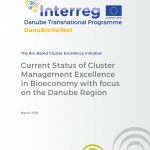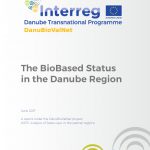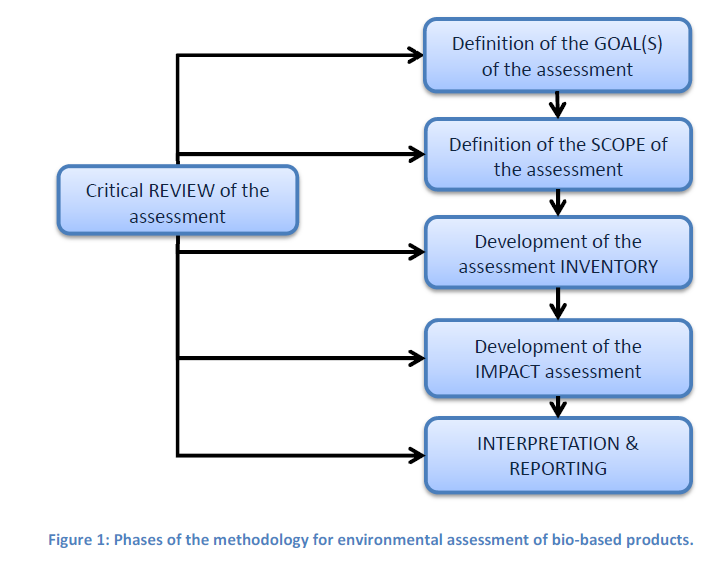Post Term: Publication
The Bio-based Cluster Excellence Initiative Report
This report outlines the results of the BBCEI benchmarking exercise. By comparing the current 25 BBCEI clusters with cluster initiatives from all over Europe (EU28 plus Norway), it offers valuable insights to cluster organisations operating Bio-based clusters in the Danube region.
The BBCEI is a joint undertaking of the DanuBioValNet project and the European Secretariat for Cluster Analysis (ESCA).
The BioBased Status in the Danube Region
The DanuBioValNet partners have provided an important initial overview of the state of the bioeconomy for their affiliated regions in the multi-country Danube macro region. A key initial advancement in the DanuBioValNet effort is reflected in the ability of the partners from diverse country settings to agree on the basic goals of the project and the general methodology to be pursued.
The development and sharing of the respective country reports has set the stage for more detailed examination of specific selected bio-based sectors in the region along with the associated value chains.
The report prepared for the ten selected Danube countries offers concrete observations on the current regional situation regarding the strengths and weaknesses associated with bio-based products, suppliers and markets as well as innovation opportunities and R&D competences.
The reports provides preliminary information on the regional bio-based strategies and government policies already in place and identifies certain policy gaps that can be addressed through the DanuBioValNet project.
It became obvious that only a few regions/ countries have a dedicated strategy or policy in place. However, several regions identified Bioeconomy as one of several Priority Areas under their Smart Specialisation Strategies (S3).
The participating partners benefited from group presentations and discussions at the DanuBioValNet partners meeting in Prague on March 31, 2017.
The topics covered at this meeting included dimensions and characteristics of value chains as applied to bio-based sectors of industry and manufacturing.
Emphasis was placed on the need to identify and analyse cluster initiatives and associated value chains based on their relevance, competence and potential for sustaining biobased industries in the region.
Methodology for environmental sustainability assessment in the framework of bioeconomy observatory
The methodology presented hereafter is meant to provide a user friendly tool to assess the environmental sustainability of bio-based products and their supply chains, largely using a life-cycle perspective. It should be regarded as a comprehensive science-based method, able to provide quantitative understanding of a wide range of environmental aspects. In practice, its applicability may be constrained by the actual extent of
availability and/or accessibility of data and information. In turn, applying the methodology can help identifying existing gaps in data and/or information availability and/or accessibility, thus bringing useful insights to the understanding of the product-system being assessed. In the context of this project, such a methodology will be used e.g. to conduct comparative environmental assessments of bio-based products along their supply chains, i.e. from primary production of biological resources to end-of-life (EoL) processes.
RoadToBio – Roadmap for the Chemical Industry in Europe towards a Bioeconomy – Action Plan
The Action Plan is the first entry point to the RoadToBio roadmap written for the chemical industry. It provides an overview of the key points of the roadmap and shows all identified barriers and recommended actions identified in the project for nine product groups in which bio-based value chains already make up for a significant share, but can still be strengthened: adhesives, agrochemicals, cosmetics, lubricants, man-made fibres, paints and coatings, plastics and/or polymers, solvents, and surfactants.
For these product groups the action plan provides:
- description of current state and opportunities for bio-based products
- overview scheme identifying drivers and barriers
- chevron diagram showing the recommended actions for each barrier
For some wider issues that concern the chemical industry in the bioeconomy. referred to as general barriers, an overview is given and some recommended actions to overcome them are presented.
RoadToBio – Roadmap for the Chemical Industry in Europe towards a Bioeconomy
The roadmap written for the chemical industry has the aspiration to show a way on how to increase the share of bio-based or renewable feedstock to 25% of total volume of organic chemicals raw materials/feedstock used by the chemical industry in 2030. This document is intended to provide an evidence-based foundation for the EU chemical industry upon which future policy can be implemented and actions delivered.
It describes the actions needed from all stakeholders (government and policy makers, funding bodies, NGOs, the chemical industry, academia, R&D centres, and commercial entities) to incentivise and facilitate the use of bio-based feedstocks and intermediates in the chemicals industry between now and 2030.
The roadmap aims to deliver a set of key messages and actions for each of the nine product groups in scope to achieve the overarching objectives, set out over time, showing interdependencies between them. Along with this, the roadmap will also focus on a set of general barriers that apply to the entire European chemicals industry, and actions that could be taken to address them.




